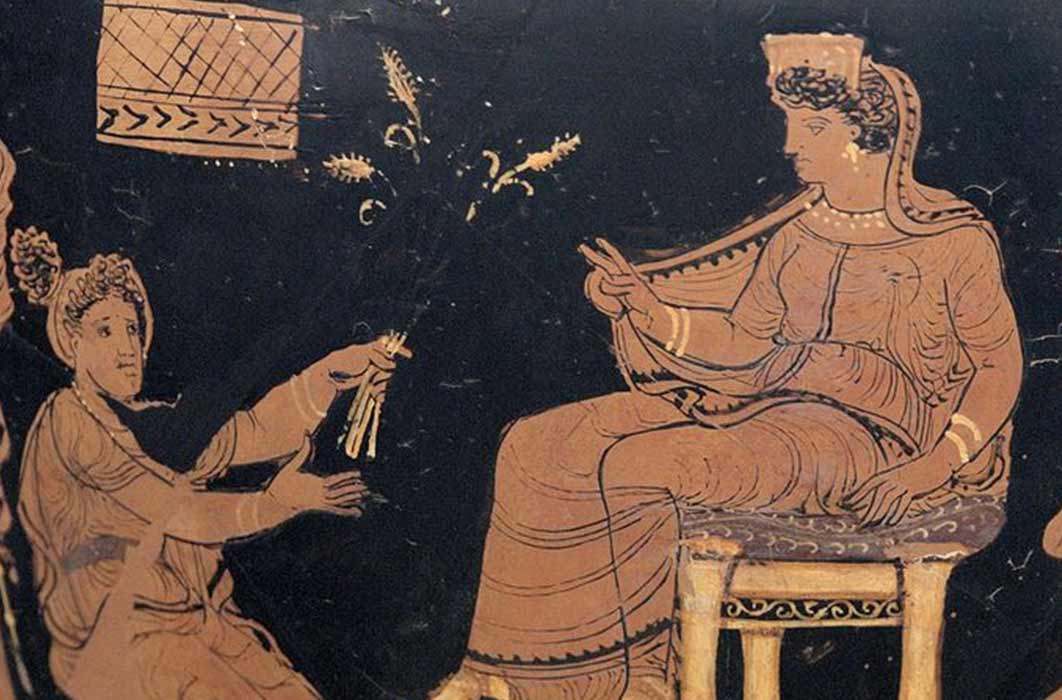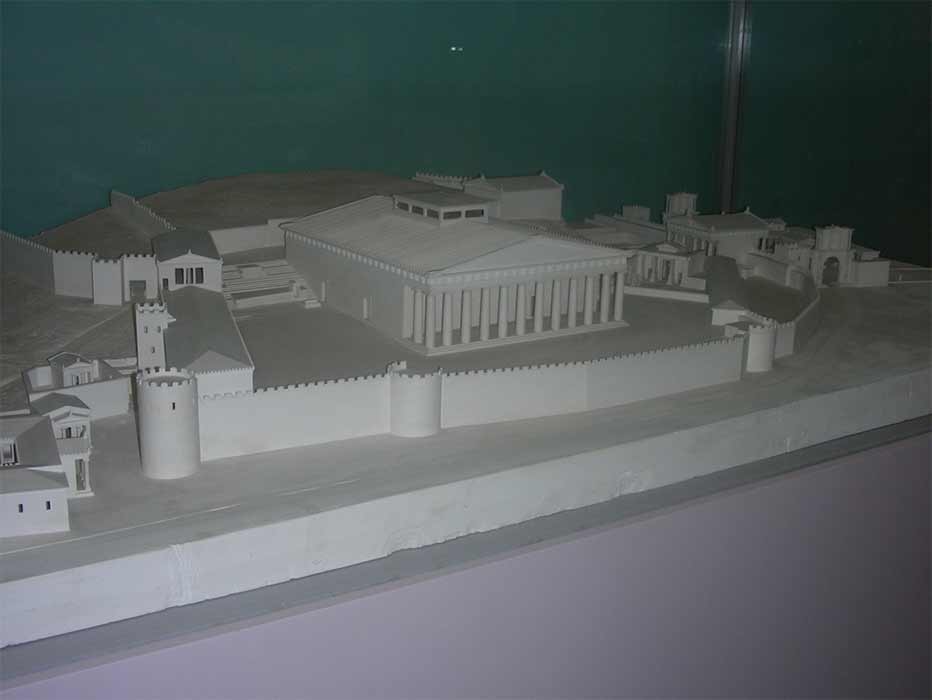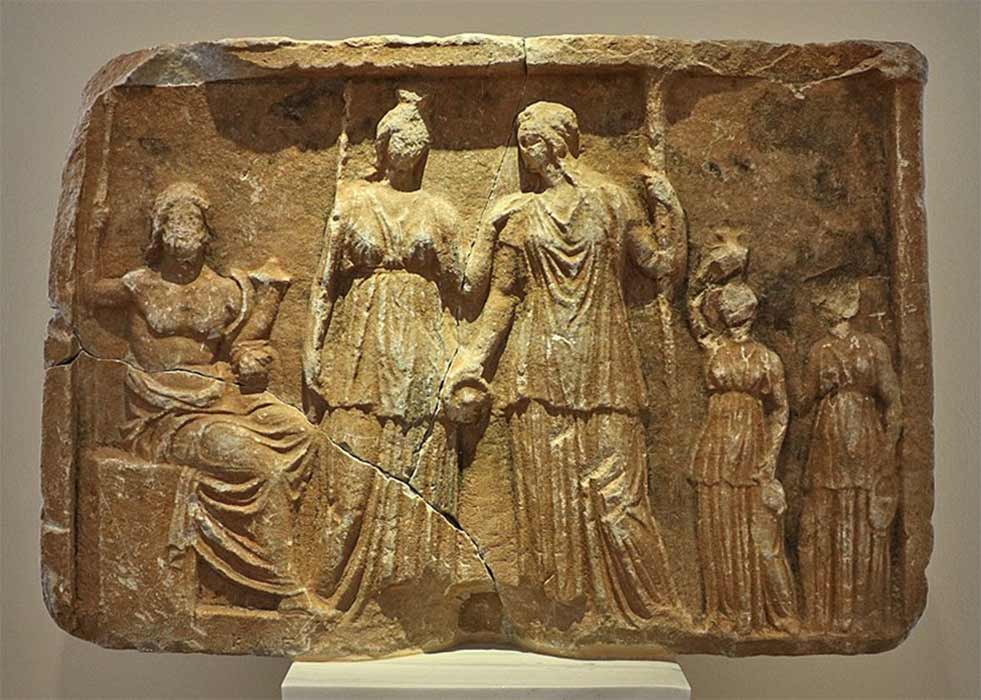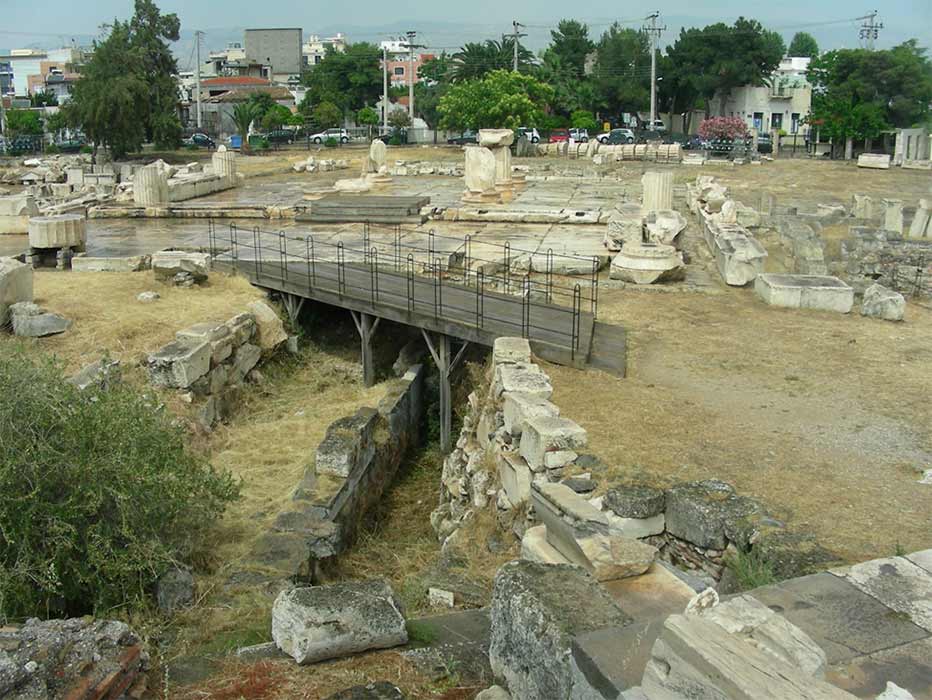
The Eleusinian Mysteries: Demeter’s Secret And Sacred Rites
Conjuring up mystical images of secret initiation rites held under cover of darkness, the Eleusinian Mysteries had a reputation as a dark and dangerous festival. In fact, it was surrounded by such an aura of deadly secrecy that the tragedian Aeschylus was nearly killed on stage just for referencing it. But what were the Mysteries really about? And what made them renowned? Demeter’s Rites of Eleusis better known as the Eleusinian Mysteries were noteworthy by their egalitarianism on the one hand, and their exclusivity on the other. Open to everyone free of “blood guilt” but exclusive only to those who were initiated in their secret rites. Considered the most acclaimed of all religious festivals throughout the Greek world, like the all-female festival, Thesmophoria, the Mysteries honored Demeter, goddess of the harvest and her daughter, Persephone, queen of the underworld and were believed to have emerged as a masculine response to the Thesmophoria.

Restoration of the Eleusinian Sactuary (550 – 510 BC) at Eleusis showing the Pisistratan Wall and Telesterion. Model by J Travlos (Image: Courtesy Micki Pistorius)
The Legend Of Demeter And Persephone
The festival sprang from the myth which begins when Demeter’s daughter Kore is kidnapped by Hades, lord of the underworld—after her abduction Kore’s name changes to Persephone. Carrying a torch, Demeter searches nine days for her daughter and has adventures with mortals until she realizes her true strength lies in her fertility—so she stops the seasons. And the earth becomes a barren wasteland. Zeus pleads with Demeter to make the earth abundant once again but she will not relent until Persephone is returned to her. Zeus orders Hades to release Persephone. Hades adheres, but not before luring Persephone into eating a pomegranate seed. The mere act of eating in the underworld, binds Persephone to Hades for a few months each year. The myth is allegorical of agricultural renewal, from life to death and back again each year. Although agriculture played a part in the Mysteries, its role was greatly diminished in favor of the eschatological nature of Demeter’s story; that is to say issues regarding life after death. In the minds of the ancients, nature’s resurrection each year was emblematic of humankind’s immortality.

Pluto enthroned with a scepter and cornucopia. In front of him stand Persephone with a scepter and Demeter with a bowl and torch from Tegea. National Archaeological Museum of Athens. Athens, Greece (George E. Koronaios/ CC BY-SA 4.0)
The Mysteries At Eleusis
Thought to have predated the Greek Dark Ages (1100 BC-800 BC), the Mysteries reach back into the Mycenaean period (1600 BC- 1100 BC) yet the bulk of evidence about the festival dates from the Archaic period (800 BC- 480 BC). Although its foundations were in the Greek world it was celebrated throughout the Roman Empire and garnered near universal reverence up until the late fourth century AD when Byzantine Emperor Theodosius I proscribed the worship of any deities but the Christian father and son. But the Eleusinian Mysteries were more than a religious festival, it had become a civic festival where its renown in ancient Greece and beyond played a pivotal role in the region’s concept of cultural hegemony. What was so mysterious about the Eleusinian Mysteries? The answer can be found in the word itself. Novice initiates of the cult were called mystai and the accompanying ever-secret initiation ritual was called mysteria; participation in the secret cult was restricted to its initiates where initiation ceremonies played a key role in the sacred rituals.
- Thesmophoria: Feminine Consciousness in Ancient Greece
- The Eleusinian Psychedelic Rebirth Rites of Ancient Greece are Making a Comeback
- Initiation to Secrecy: Unravelling the Truth Behind Mystery Schools
The Eleusinian Mysteries were composed of both the Lesser Mysteries honoring Persephone and were observed in the spring and the Greater Mysteries, honoring Demeter and celebrated six months later in the fall in the month of Boedromion, now known as September-October—directly before the sowing season which heralded the Thesmophoria. As a preparation for the Greater Mysteries, a candidate could become a mystes or a novice initiate to begin his/her worship in the ranks of the Lesser Mysteries only to progress into the more enlightened Greater Mysteries once his/her initiation was complete. The initiation period is believed to have been a year, after which time the mystes or blinded one would ascend into the hallowed ranks of epoptes or seer and be able to participate as a full initiate of the Greater or Epoptical (all seeing) Mysteries.

Remains of the Greater Propylaea, forming the main entrance to the Sanctuary (Image: Courtesy Micki Pistorius)




